
+91 8095511877

+91 8095511877
Obesity is a major global disease with epidemic proportions and is not just a cosmetic problem. Weight loss surgery is the only accepted, standardized, and safe treatment option for obesity.
The presence of an excessive amount of fat in your body leads to diseases. It puts you at risk of many other health issues. Studies show that more than 50% of the world population is either obese or overweight. About five million people die every year in the world due to issues with obesity. Obesity leads to many health issues like diabetes, heart disease, stroke, etc.
BMI or Body Mass Index is the most common indicator of weight classification. It considers your height and weight as the factors for its calculation. BMI is the weight of the person in kilograms divided by square of the height in meters. In the imperial system, BMI is the weight in pounds divided by square of the height in inches multiplied by 703.
This value indicates your weight group
There are many methods to reduce weight. The right one for you will depend on your level of obesity, overall health, and commitment. The main methods are
Weight loss or bariatric surgery is a proven treatment for obesity. You can go for weight loss surgery if
However, the recommendation to perform bariatric surgery in Class 1 obesity(BMI 30.0-34.9) depends on many other patient factors and comorbidities.
The goals of weight-loss surgery are
Weight-loss surgery is a major life-changing decision. It also needs a commitment to a new way of life. So, you have to be sure about this before deciding to go for the surgery.
There are two main variants of weight-loss surgery. They are
Some of the common types of weight-loss surgeries are listed below. They have all their benefits and drawbacks. Your doctor will discuss them with you and decide on the right option for you.
It is a combination of restrictive and malabsorptive types. In this, the surgeon will make a small pouch by dividing the stomach into two parts. The smaller part, which is the pouch, is connected to the lower part of your intestine. As the connection between the stomach and your intestine is still there, your stomach will continue to make the digestive juices that will flow to the small intestine.
Gastric bypass helps to reduce weight in multiple ways. First, as the size of the stomach pouch is small, it limits your food intake. Then, as the food bypasses a large part of the intestine, fewer calories and nutrients are absorbed. Finally, this bypass of the food stream leads to changes in your gut hormones, reversing the effect of Type 2 diabetes.
In this restrictive method, the surgeon will remove about 80% of your stomach. The remaining part will be in the form of a tube banana that connects to the intestines. You will consume less food as the size is small.
It is the most complex weight loss surgery. This method is a combination of gastric sleeve and bypass surgeries.
First, the surgeon will remove a large part of your stomach, like in a gastric sleeve. Then, the surgeon will divide the duodenum, which is the first part of the small intestine, near the stomach outlet. A portion of the distal, lower part of the intestine, is brought up and gets connected to the pouch. About three fourth of the intestine gets bypassed due to this.
The surgeon will then reconnect the bypassed intestine to the last part of the small intestine. The bile and pancreatic juices will flow through this channel.
Gastric band: In this restrictive surgery, the surgeon uses an adjustable band to apportion your stomach. Your stomach will have a smaller upper section and a larger lower section. The band controls the size of the opening between the two parts in the stomach. It limits the amount of food that you can take before feeling full.
The gastric band is a much simpler option compared to the other surgeries above. However, the effect of weight loss is also lower here.
This method is obsolete now due to the advent of better methods like gastric sleeve.
Gastric balloon: In this, the doctor will insert a saline-filled balloon into your stomach through your mouth endoscopically. It makes you feel fuller with less food. It is a short term method for about six months. You may lose up to 10% of your excess weight through this. This procedure has the most risks and complications associated amongst all bariatric procedures.
As weight-loss is a major procedure, it is always better to prepare well for it. Here are some tips that you will help you prepare better.
You will have to make some short and long term changes after weight-loss surgery to have the best results. It helps to speed up weight loss and to maintain the loss.
Things that you should do at home after the surgery
There are a few things that you should also avoid for the best outcome. These are


This article has been reviewed for medical correctness and relevance by
Dr Aloy Mukherjee
Dr. Aloy J Mukherjee is an Advanced Minimal Access, Gastro-Intestinal , HPB , Obesity and Metabolic Surgical Specialist (Bariatric), Thoracoscopic and Endocrine( Thyroid, Parathyroid, Breast, Adrenal Gland) Surgeon. He specialises in Laparoscopy or Robotic Surgery. Dr Mukherjee has an experience of 23+ years in these fields. After completing his MBBS from Gauhati Medical College, Guwahati in 1993 and Masters in Surgery (General Surgery) in 2001,he completed his senior residency from AIIMS, New Delhi in 2004. He was awarded Fellowship of the Indian Association of Gastro Intestinal Endo Surgeons in 2008.In 2008, he was conferred the Honorary membership of the National Academy of Medical Sciences (India) in recognition to the significant contribution for advancement of Medical Sciences. He received his Robotic Surgical training in 2016 and received his Fellowship in Advanced Laparoscopic Surgery(FALS) and Fellowship in Minimal Access Surgery(FMAS) in 2017.
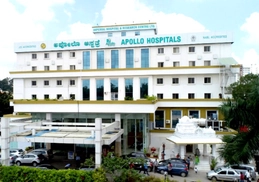
Apollo Bangalore
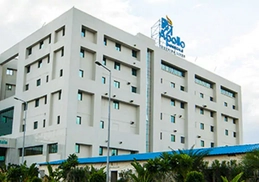
Apollo Chennai
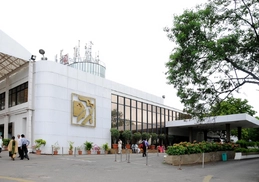
Apollo Health City
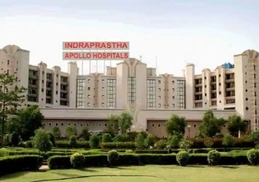
Apollo Indraprastha
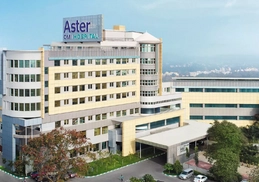
Aster CMI
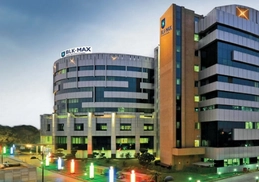
BLK Hospital
Frequently Asked Questions
What are the different weight loss surgery options in India?
Can weight loss cure Type 2 diabetes?
What is the cost of weight loss surgery in India?
Who is the right candidate for the weight loss surgery?